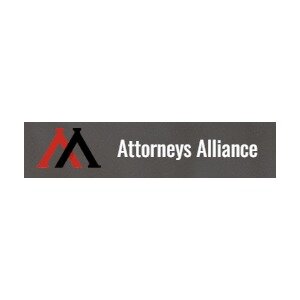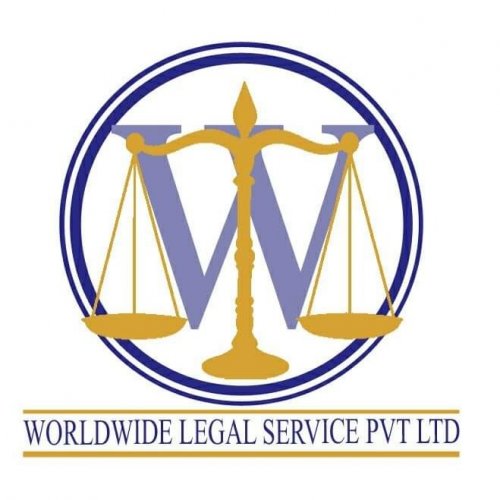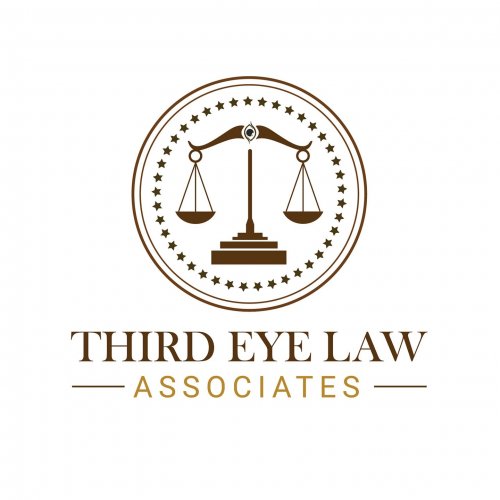Best Corporate & Commercial Lawyers in Kathmandu
Share your needs with us, get contacted by law firms.
Free. Takes 2 min.
List of the best lawyers in Kathmandu, Nepal
About Corporate & Commercial Law in Kathmandu, Nepal
Corporate & Commercial law is a core area of legal practice in Kathmandu, Nepal. This field encompasses the rules, regulations, and practices governing how businesses are formed, operated, and dissolved. Whether dealing with company formation, mergers, contracts, employment concerns, or regulatory compliance, Corporate & Commercial law shapes the business environment. Kathmandu, being Nepal’s commercial hub, is home to a diverse range of businesses, from startups to multinational corporations, making corporate and commercial legal services essential for smooth business operations.
Why You May Need a Lawyer
There are numerous reasons you might need legal assistance in Corporate & Commercial law in Kathmandu:
- Establishing a business, such as registering a private limited company, public limited company, or partnership, requires navigating a complex legal landscape.
- Drafting and reviewing commercial contracts, joint venture agreements, and shareholder agreements to protect your interests.
- Ensuring compliance with Nepalese tax, employment, and regulatory laws to avoid future disputes or penalties.
- Managing mergers, acquisitions, and business restructuring, which often involve intricate legal issues and due diligence.
- Resolving business disputes, including matters related to breach of contract, intellectual property infringement, and unfair business practices.
- Guiding foreign investors through investment processes, compliance requirements, and repatriation of profits.
- Handling insolvency, liquidation, and winding up of companies, requiring strict adherence to legal protocols.
Local Laws Overview
Corporate & Commercial law in Kathmandu is governed by a blend of statutes, regulations, and customary practices. The key statutes include the Companies Act 2063 (2006), the Contract Act 2056 (2000), the Foreign Investment and Technology Transfer Act (FITTA) 2019, the Industrial Enterprises Act 2016, the Income Tax Act 2058 (2002), and various labor and competition laws.
Some notable legal considerations in Corporate & Commercial law include:
- Company Formation: The Companies Act sets out requirements for registration, share capital, directorship, and operational compliance.
- Foreign Investment: FITTA and investment-related guidelines regulate entry, equity structure, profit repatriation, and licensing for foreign investors.
- Contractual Matters: The Contract Act provides the legal foundation for the creation and enforcement of commercial agreements.
- Employment Law: The Labour Act outlines employer and employee rights, obligations, wage matters, and dispute resolution.
- Taxation: Businesses must comply with the Income Tax Act and Value Added Tax Act, covering registration, filing, and payment procedures.
- Intellectual Property: Although less developed, trademark, patent, and copyright protection are increasingly relevant in a competitive market.
Frequently Asked Questions
What is the process for registering a company in Kathmandu, Nepal?
To register a company, you need to submit required documents to the Office of the Company Registrar, including a memorandum and articles of association, details of shareholders and directors, and registration fees. After review and approval, you receive a certificate of incorporation.
Can foreign nationals or companies invest in businesses in Nepal?
Yes, foreign investment is allowed but subject to restrictions, sectoral limitations, and minimum investment thresholds under FITTA. Approval from the Department of Industry and compliance with sector-specific regulations are required.
How are commercial disputes resolved in Nepal?
Commercial disputes are resolved through mediation, arbitration, or litigation in Nepali courts, depending on the contract terms and the nature of the dispute. Arbitration is common for international transactions.
What are the common types of business entities in Kathmandu?
The primary entities include private limited companies, public limited companies, partnerships, and sole proprietorships. Each has different registration, governance, and liability requirements.
How can I ensure compliance with labor laws in my business?
You must comply with minimum wage standards, employment contracts, working hours, provident fund contributions, and health and safety regulations as outlined in the Labour Act and related directives.
What are the tax obligations for companies in Kathmandu?
Companies must obtain a Permanent Account Number, file annual tax returns, pay corporate income tax, and collect and submit Value Added Tax on applicable goods and services. Accurate bookkeeping is essential.
What rights do minority shareholders have in Nepal?
Minority shareholders are protected under the Companies Act, which provides remedies against oppressive decisions, ensures access to information, and grants certain voting and inspection rights.
Are cross-border commercial transactions regulated in Nepal?
Yes, cross-border transactions must comply with foreign exchange, trade, and investment regulations. Approvals from Nepal Rastra Bank or other authorities may be necessary for currency transfers or offshore dealings.
How do I protect my business’s intellectual property?
You must register trademarks, patents, or copyrights with the Department of Industry. Legal enforcement is possible against infringement, though processes can be lengthy.
What are the legal steps for business closure or liquidation?
To close a business, a formal liquidation process must be followed as set by the Companies Act. This includes notifying creditors, settling accounts, and applying for deregistration with the Company Registrar’s Office.
Additional Resources
If you need more information or official guidance, consider these resources:
- Office of the Company Registrar: The government body responsible for company registration, filings, and regulatory compliance.
- Department of Industry: Handles foreign investment approvals, licensing, and industry-specific regulations.
- Nepal Bar Association: The umbrella organization for legal professionals providing referrals and guidance.
- Nepal Rastra Bank: Regulates banking, foreign exchange, and investment inflows.
- Ministry of Industry, Commerce, and Supplies: Oversees commercial policies, trade regulations, and business facilitation.
- Federation of Nepalese Chambers of Commerce and Industry (FNCCI): Offers business support, networking, and information for companies operating in Nepal.
Next Steps
If you believe you need legal advice or representation in the field of Corporate & Commercial law in Kathmandu, consider the following steps:
- Assess your situation and gather relevant documents, such as contracts, registration certificates, and correspondence.
- Identify your primary legal concern, whether it is business formation, compliance, a transaction, or a dispute.
- Seek recommendations for qualified corporate & commercial lawyers in Kathmandu with experience in your specific area of need.
- Arrange an initial consultation to discuss your issue, understand your options, and clarify the potential costs involved.
- Stay informed by consulting official websites and keeping up with any legal updates that might affect your business.
- Document all communications and engagements with your legal counsel for future reference and compliance purposes.
Taking prompt action by consulting a legal professional can help you navigate the complexities of corporate and commercial law, minimize risks, and position your business for long-term success in Nepal.
Lawzana helps you find the best lawyers and law firms in Kathmandu through a curated and pre-screened list of qualified legal professionals. Our platform offers rankings and detailed profiles of attorneys and law firms, allowing you to compare based on practice areas, including Corporate & Commercial, experience, and client feedback.
Each profile includes a description of the firm's areas of practice, client reviews, team members and partners, year of establishment, spoken languages, office locations, contact information, social media presence, and any published articles or resources. Most firms on our platform speak English and are experienced in both local and international legal matters.
Get a quote from top-rated law firms in Kathmandu, Nepal — quickly, securely, and without unnecessary hassle.
Disclaimer:
The information provided on this page is for general informational purposes only and does not constitute legal advice. While we strive to ensure the accuracy and relevance of the content, legal information may change over time, and interpretations of the law can vary. You should always consult with a qualified legal professional for advice specific to your situation.
We disclaim all liability for actions taken or not taken based on the content of this page. If you believe any information is incorrect or outdated, please contact us, and we will review and update it where appropriate.
Browse corporate & commercial law firms by service in Kathmandu, Nepal
Kathmandu, Nepal Attorneys in related practice areas.

















